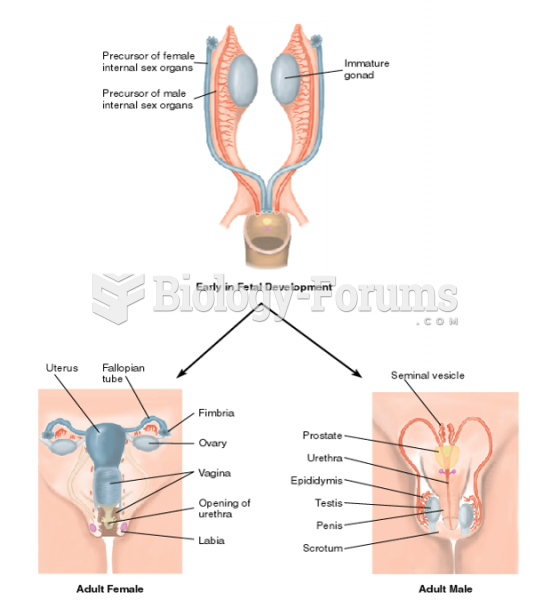|
|
|
Illicit drug use costs the United States approximately $181 billion every year.
Approximately 25% of all reported medication errors result from some kind of name confusion.
Acetaminophen (Tylenol) in overdose can seriously damage the liver. It should never be taken by people who use alcohol heavily; it can result in severe liver damage and even a condition requiring a liver transplant.
The liver is the only organ that has the ability to regenerate itself after certain types of damage. As much as 25% of the liver can be removed, and it will still regenerate back to its original shape and size. However, the liver cannot regenerate after severe damage caused by alcohol.
There are more sensory neurons in the tongue than in any other part of the body.







